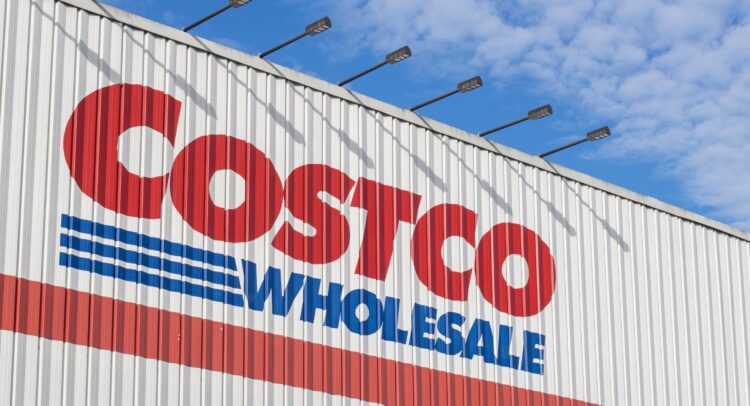Costco (NASDAQ:COST) stands out in the stock market not only for its robust business performance but also for the unique investor sentiment that surrounds it. This sentiment has propelled Costco’s stock to lofty heights, despite what many analysts consider to be an overvaluation relative to its peers. Understanding the dynamics behind Costco’s market appeal and its financial metrics provides insights into why it commands such a premium and the considerations investors should keep in mind.
Costco’s business model revolves around its membership-based warehouse retail operations, where customers pay annual fees for the privilege to shop at its stores. This model ensures a steady revenue stream and fosters customer loyalty, as members are enticed by Costco’s bulk offerings, discounted prices, and diverse product selection ranging from groceries to electronics. The membership fees themselves contribute significantly to Costco’s bottom line, providing a cushion against economic downturns and fluctuating consumer spending patterns.
The company’s financial performance has been impressive, albeit with some nuances that underscore its valuation challenges. Over the past decade, Costco has maintained a compound annual growth rate (CAGR) of 8.7% in revenues and 11.8% in earnings per share (EPS). Such growth rates are commendable for a retail giant of its size and illustrate its ability to capitalize on economies of scale and operational efficiencies. However, sustaining double-digit growth in EPS over the long term is ambitious, particularly as Costco navigates competitive pressures and operational complexities.
Investors’ enthusiasm for Costco is reflected in its stock price, which has surged by approximately 66.6% in the past year alone. This significant appreciation has driven Costco’s forward price-to-earnings (P/E) ratio to 50.4, a premium compared to its peers like Walmart (NYSE:WMT) at 27.4 and other retail chains with lower valuations. The elevated P/E ratio signals that investors are willing to pay a substantial premium for Costco’s growth prospects and perceived resilience in the retail sector.
Despite its financial strength and market leadership, Costco’s valuation has sparked debate among analysts and investors alike. The company’s current P/E ratio suggests heightened expectations for future earnings growth that may not be fully supported by historical or projected financial metrics. Analysts forecast a more moderate EPS growth rate of around 9% annually over the next five years, highlighting a potential mismatch between market sentiment and fundamental realities.
Examining Costco’s recent quarterly performance provides further context. In its latest fiscal quarter, Costco reported a 9.1% increase in net sales driven by strong same-store sales growth, expanded e-commerce operations, and new warehouse openings. The notable 29% growth in EPS to $3.78 reflects temporary margin tailwinds and operational efficiencies rather than a sustainable acceleration in growth rates.
Looking ahead, Costco faces challenges in maintaining its growth momentum amidst evolving consumer preferences, competitive pressures from e-commerce giants, and operational complexities inherent in its business model. While the company continues to innovate and expand its market reach, the sustainability of its current growth trajectory remains a key concern for investors evaluating its stock at current valuation levels.
For prospective investors, the decision to buy Costco stock hinges on a balanced assessment of its financial metrics, market conditions, and risk tolerance. Given its elevated valuation, waiting for a more attractive entry point during market corrections or dips could mitigate downside risks and enhance potential returns over the long term. However, timing the market is inherently challenging, and investors should prioritize fundamental analysis and due diligence when considering an investment in Costco.
In conclusion, Costco’s cult-like following and premium valuation underscore its market resilience and strategic advantages in the retail landscape. While its current stock price may appear unjustifiably high based on traditional valuation metrics, Costco’s strong brand equity, operational excellence, and customer loyalty position it as a formidable player in the retail industry. Investors should approach COST stock with caution, recognizing both its strengths and the inherent risks associated with its valuation dynamics in today’s market environment.
